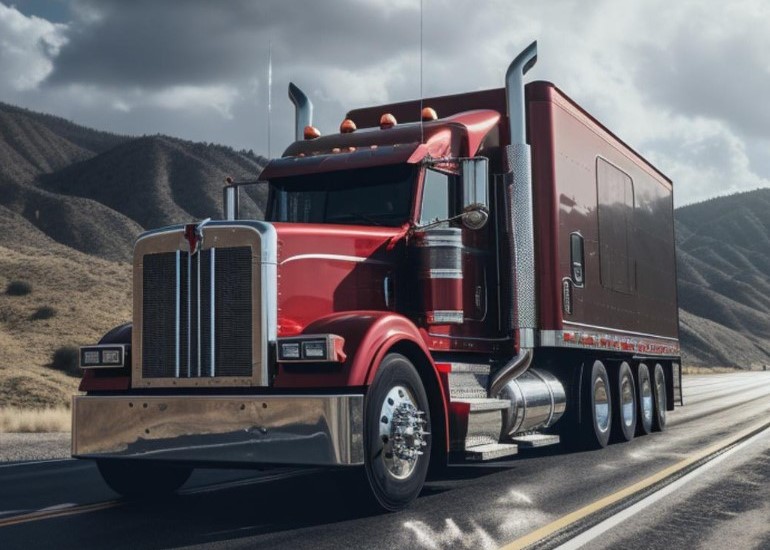Online CDL Permit Practice Tests
state West Virginia
Ace Your West Virginia CDL Exam: Free Practice Tests
Don't waste your time - start practicing with free online tests today
Our free online CDL practice tests cover all the essential topics, including General Knowledge, Air Brakes, and Combination Vehicles. Practice at your own pace, anytime, anywhere, to build your confidence and ensure you’re fully prepared for your CDL exam.
General Knowledge Test
Air Brakes
Test
Combination Vehicle Test
Step-by-Step Guide to Getting a CDL in West Virginia
Step 1: Determine Your CDL Class and Endorsements
Before applying for a Commercial Driver’s License (CDL) in West Virginia, it’s essential to determine the appropriate CDL class and any necessary endorsements based on the type of commercial vehicle you intend to operate.
CDL Classes in West Virginia
Class A: Permits operation of any combination of vehicles with a gross vehicle weight rating (GVWR) of 26,001 pounds or more, provided the vehicle being towed exceeds 10,000 pounds.
Class B: Allows operation of a single vehicle with a GVWR of 26,001 pounds or more, or towing a vehicle not exceeding 10,000 pounds.
Class C: Covers single vehicles with a GVWR less than 26,001 pounds or vehicles towing a vehicle not exceeding 10,000 pounds, designed to transport 16 or more passengers (including the driver) or used in the transportation of hazardous materials requiring placarding.
CDL Endorsements
Depending on your intended driving duties, you may need to obtain specific endorsements:
H (Hazardous Materials): Required for transporting hazardous materials; retesting is required at renewal and transfer.
N (Tank Vehicles): For operating vehicles designed to transport liquids or gases in bulk.
P (Passenger): Necessary for transporting passengers; a road skills test is required.
S (School Bus): Mandatory for operating school buses; a road skills test is required.
T (Doubles and Triples): For towing double or triple trailers.
X (Combination of Tank Vehicle and Hazardous Materials): Combines the N and H endorsements.
CDL Restrictions
Certain restrictions may apply based on vehicle type or driver qualifications:
E: Prohibits operating commercial motor vehicles (CMVs) with manual transmissions.
K: Limits driving to within West Virginia only (intrastate driving), applicable to drivers under 21 or those with a medical waiver.
L: Restricts operation to vehicles not equipped with air brakes.
M: Limits driver to Class B and C buses only.
N: Restricts driver to buses 26,000 pounds and under (Class C buses).
O: Prohibits operation of tractor-trailer CMVs.
P: Prohibits passengers in CMV buses.
V: Indicates a medical variance.
X: Prohibits carrying cargo in CMV tank vehicles.
Z: Restricts operation to vehicles not equipped with full air brakes.
Selecting the correct CDL class and endorsements is crucial to ensure compliance with state regulations and to align with your intended commercial driving activities. For comprehensive information and to address specific questions, consult the West Virginia Department of Transportation’s official resources.
Step 2: Obtain a Commercial Learner's Permit (CLP):
To obtain a Commercial Learner’s Permit (CLP) in West Virginia, follow these steps:
1. Verify Eligibility
Age Requirement: You must be at least 18 years old and have held a valid driver’s license for a minimum of one year.
Driving Record: Maintain a clean driving history, as certain violations may disqualify you from obtaining a CLP.
2. Prepare Required Documentation
Proof of Identity: Provide a valid U.S. Passport, birth certificate, or Permanent Resident Card.
Social Security Number: Present your Social Security card.
Residency Verification: Submit two documents confirming your West Virginia residency, such as utility bills or bank statements.
Medical Certification: Obtain a Medical Examiner’s Certificate from a certified medical examiner listed on the FMCSA’s National Registry.
3. Study for the Knowledge Tests
CDL Manual: Review the West Virginia Commercial Driver’s License Manual to understand the material covered in the knowledge tests.
Practice Tests: Utilize practice exams to assess your understanding and readiness.
4. Submit Application and Fees
Application Form: Complete the Application for Commercial Driver’s License (CDL) and/or Endorsements (Form DMV-CDL-1).
Fee Payment: Calculate the total fees, including the knowledge test(s) and a $7.50 fee for the instruction permit.
Submission: Mail the completed application and fees to the West Virginia Division of Motor Vehicles (DMV) at the address provided on the application form.
5. Take the Knowledge Tests
Scheduling: After your application is processed, schedule an appointment at a DMV regional office to take the required knowledge tests.
Testing: Pass the general knowledge test and any additional tests for desired endorsements.
6. Receive Your CLP
Permit Issuance: Upon passing the knowledge tests, you will be issued a CLP, valid for 180 days.
Practice Period: You must hold the CLP for at least 14 days before scheduling the road skills test. During this period, you can practice driving a commercial vehicle under the supervision of a qualified CDL holder.
By carefully following these steps and meeting all requirements, you will be well-prepared to obtain your Commercial Learner’s Permit in West Virginia.
Step 3: Complete Entry-Level Driver Training (ELDT):
After obtaining your Commercial Learner’s Permit (CLP) in West Virginia, the next step is to complete the federally mandated Entry-Level Driver Training (ELDT).
Understanding ELDT Requirements
As of February 7, 2022, the Federal Motor Carrier Safety Administration (FMCSA) requires ELDT for individuals who are:
Applying for a Class A or Class B Commercial Driver’s License (CDL) for the first time.
Upgrading from a Class B to a Class A CDL.
Obtaining a school bus (S), passenger (P), or hazardous materials (H) endorsement for the first time.
This training must be completed before taking the CDL skills or knowledge tests.
Components of ELDT
The ELDT program includes both theory (knowledge) and behind-the-wheel (BTW) instruction:
Theory Instruction: Covers topics such as basic operation, safe operating procedures, advanced operating practices, vehicle systems, and non-driving activities.
Behind-the-Wheel Training: Provides hands-on driving experience under the supervision of a qualified instructor, focusing on vehicle control skills and maneuvers on both a range and public roads.
Trainees must demonstrate proficiency in both areas to successfully complete the program.
Selecting an Approved Training Provider
Training must be obtained from a provider listed on the FMCSA’s Training Provider Registry (TPR). This registry includes various entities such as training schools, educational institutions, and motor carriers that meet federal standards.
State-Specific Considerations in West Virginia
West Virginia may have additional requirements or approved training providers specific to the state. It’s advisable to consult the West Virginia Division of Motor Vehicles (DMV) for detailed information on state-specific ELDT requirements and approved training providers.
By completing the ELDT with an approved provider and adhering to both federal and West Virginia state regulations, you will be well-prepared to proceed with the CDL skills or knowledge tests, bringing you closer to achieving your commercial driving objectives.
Step 4: Practice with Your CLP:
After obtaining your Commercial Learner’s Permit (CLP) in West Virginia, it’s essential to gain practical experience to prepare for the Commercial Driver’s License (CDL) skills test.
Supervised Driving Requirements
While holding a CLP, you may operate a commercial motor vehicle (CMV) only when accompanied by a qualified CDL holder who occupies the seat beside you for instructional purposes.
Practice Period
You must hold the CLP for a minimum of 14 days before you are eligible to take the CDL road skills test.
Vehicle Operation Limitations
Ensure that the vehicle you practice with matches the class and type for which you are seeking licensure. Adhering to these guidelines will help you develop the necessary skills and confidence to successfully pass the CDL skills test in West Virginia.
Step 5: Schedule and Pass the CDL Skills Test:
After holding your Commercial Learner’s Permit (CLP) in West Virginia for at least 14 days, you are eligible to schedule and take the Commercial Driver’s License (CDL) skills test.
Scheduling the CDL Skills Test
Contact a Third-Party Examiner: West Virginia utilizes certified third-party examiners to administer the CDL skills test. You must contact one of these examiners directly to schedule your test. A list of approved examiners can be found in the West Virginia Commercial Driver License Manual.
Prepare Necessary Documentation: Before your test appointment, ensure you have:
Your valid CLP.
A valid Medical Examiner’s Certificate.
Proof of completion of Entry-Level Driver Training (ELDT), if applicable.
A properly insured and registered vehicle representative of the class of license you are seeking.
Components of the CDL Skills Test
The skills test comprises three main parts:
Pre-Trip Vehicle Inspection: Demonstrate your knowledge of the vehicle’s safety features and readiness for operation.
Basic Vehicle Control: Show proficiency in controlling the vehicle, including maneuvers such as backing, turning, and parking.
On-Road Driving: Exhibit safe driving practices in various traffic situations on public roads.
Each section must be passed independently. Failure in any section will require a retest for that specific part.
Test Day Expectations
Arrival: Arrive at the testing location early to allow time for check-in and vehicle setup.
Vehicle Requirements: The vehicle used for testing must be in safe operating condition, with valid registration and insurance.
Identification: Present all required documents to the examiner before testing begins.
Retesting Policy
If you do not pass any portion of the skills test, you must wait a minimum of seven days before retesting. You are allowed up to three attempts on the original fees paid. After three failed attempts, additional fees will apply for subsequent tests.
By thoroughly preparing and understanding the testing process, you increase your chances of successfully obtaining your CDL in West Virginia.
Step 6: Obtain Your CDL:
After successfully passing the Commercial Driver’s License (CDL) skills test in West Virginia, you are ready to obtain your official CDL.
1. Submit Skills Test Documentation
Test Results: Ensure that the certified third-party examiner has forwarded your passing results to the West Virginia Division of Motor Vehicles (DMV).
Medical Certification: Provide a valid Medical Examiner’s Certificate (MEC) completed by a certified medical examiner listed on the FMCSA’s National Registry.
2. Visit a DMV Regional Office
Identification and Residency: Bring proof of identity, Social Security number, and two proofs of West Virginia residency. Acceptable documents include a birth certificate, U.S. Passport, Social Security card, utility bills, or bank statements.
Legal Presence: If applicable, provide documentation verifying your legal status in the United States.
3. Pay Applicable Fees
CDL Issuance Fee: The fee for obtaining a CDL in West Virginia ranges between $26.25 and $61.25, depending on the number of years it will be issued for, as CDLs are issued by date of birth.
Endorsement Fees: Each endorsement added to your CDL incurs an additional fee of $10.
Hazardous Materials Endorsement: If you are adding a Hazardous Materials (Hazmat) endorsement, you must complete a fingerprint-based background check through the Transportation Security Administration (TSA) and pay the associated fee.
4. Receive Your CDL
License Issuance: After processing your application and fees, the DMV will issue your West Virginia CDL.
Validity Period: The CDL will be valid for a period determined by your birth date and issuance date.
By completing these steps and providing the necessary documentation and fees, you will successfully obtain your Commercial Driver’s License in West Virginia, enabling you to pursue opportunities in commercial driving within the state and beyond.
Additional Considerations:
When pursuing a Commercial Driver’s License (CDL) in West Virginia, several additional factors merit attention to ensure a smooth application process and compliance with state regulations.
Proof of Citizenship and Residency
Citizenship Verification: Applicants must provide proof of U.S. citizenship, such as a birth certificate, valid U.S. Passport, or valid Permanent Resident card.
Residency Documentation: Two proofs of West Virginia residency are required. Acceptable documents include utility bills (not more than 60 days old), tax records with a WV street address, or a valid WV vehicle registration card.
Medical Certification
Medical Examiner’s Certificate (MEC): A valid MEC, completed by a certified medical examiner listed on the FMCSA’s National Registry, must be presented with each CDL transaction. The certificate must be valid for at least 30 days.
Application Process
Knowledge Test Application: To apply for a CDL knowledge test, submit the completed application along with proof of citizenship and the required fees to the DMV. The application must be filled out in full, front and back.
Skills Test Scheduling: After obtaining a CDL instruction permit, which requires passing the knowledge test and paying a $7.50 fee, applicants must wait a minimum of 14 days before they are eligible to take the CDL road skills test.
Fees
License Fees: All Class A, B, and C CDLs are issued by the applicant’s date of birth, with fees ranging between $26.25 and $61.25, depending on the number of years the license will be valid. Class D CDL fees range between $19.25 and $44.25.
Endorsement Fees: Adding an endorsement requires a $10.00 fee per endorsement, plus a $7.50 duplicate license fee. For example, adding one endorsement totals $17.50; two endorsements total $27.50.
Hazardous Materials Endorsement
Testing Attempts: A HAZMAT endorsement holder renewing their CDL will receive three attempts to pass the HAZMAT endorsement test on a valid, non-expired license. If the CDL is expired, a HAZMAT test card from the CDL office in Charleston is required before testing.
Background Check: Applicants must pass a Transportation Security Administration (TSA) security threat assessment process as part of the application. Additionally, completion of the hazardous materials Entry-Level Driver Training (ELDT) is required before applying for and receiving a test card to take the hazardous materials knowledge test.
Farm-Related Service CDLs
Exemptions: Drivers applying for a farm-related service CDL are not required to pass knowledge and skills tests but must meet applicable medical requirements. These CDLs are valid for 180 days as indicated on the certificate of exemption.
REAL ID Compliance
Optional Upgrade: While not mandatory, applicants may choose to obtain a REAL ID-compliant CDL, indicated by a gold star on the license. This ensures compliance with the REAL ID Act requirements for federal use at airports and other designated facilities.
By addressing these considerations and preparing the necessary documentation and fees, applicants can navigate the CDL application process in West Virginia more effectively, ensuring compliance with all state and federal regulations.
Frequently asked questions
What are the age requirements for obtaining a CDL in West Virginia?
You must be at least 18 years old to operate a commercial motor vehicle within West Virginia for intrastate use. To drive commercially across state lines or transport hazardous materials, you must be at least 21 years old.
What are the different classes of CDLs available in West Virginia?
West Virginia offers three classes of CDLs. Class A is for combination vehicles with a gross combination weight rating of 26,001 pounds or more, with the towed unit exceeding 10,000 pounds. Class B covers single vehicles with a gross vehicle weight rating of 26,001 pounds or more, with towed units not exceeding 10,000 pounds. Class C applies to vehicles not meeting the criteria of A or B but designed to carry 16 or more passengers or hazardous materials.
What endorsements can be added to a CDL in West Virginia?
Endorsements include H for hazardous materials, N for tank vehicles, P for passengers, S for school buses, T for double/triple trailers, and X for a combination of tank and hazardous materials. Each requires passing additional knowledge tests and, in some cases, skills tests.
How do I get a Commercial Learner’s Permit in West Virginia?
You need to hold a valid West Virginia driver’s license, submit proof of U.S. citizenship or lawful presence, provide a valid medical certificate, pass the CDL knowledge tests for the class and endorsements you want, and pay the required fees.
Is Entry-Level Driver Training required?
Yes. Entry-Level Driver Training is mandatory for first-time applicants of Class A or B CDLs, upgrades from Class B to A, and first-time applicants for school bus, passenger, or hazardous materials endorsements. The training must be completed through a provider listed on the FMCSA Training Provider Registry.
What does the CDL skills test include?
The skills test is divided into three parts: a pre-trip vehicle inspection, basic vehicle control, and on-road driving. You must pass all three sections to qualify for a CDL.
Where can I take the CDL skills test in West Virginia?
Skills tests are conducted by certified third-party examiners authorized by the West Virginia DMV. You must schedule your test with one of these approved examiners.
Can I renew my CLP if I don’t pass the skills test in time?
Yes. If your CLP expires before you pass all parts of the skills test, you must apply for a new one. You may have to retake the knowledge test and observe the 14-day waiting period again.
What happens after I pass the CDL skills test?
Once you pass the skills test, the examiner submits your results to the DMV. You then visit a DMV office to provide the required documents and pay the issuance fees. Your official CDL will be issued afterward.



